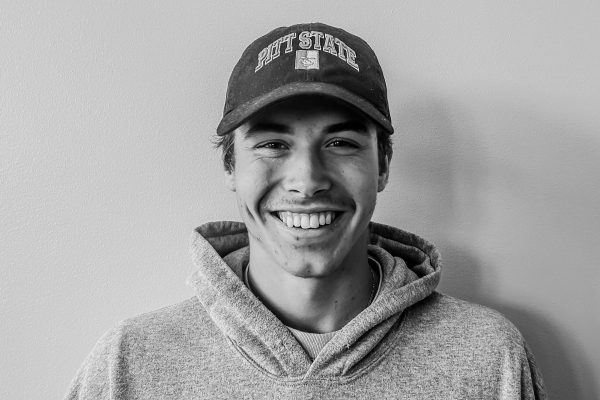Is Broco Blatantly Misogynistic?
Infographic by Emme Perencevich
October 29, 2020
By the time this is published, the homecoming court will have been decided. However, the court itself isn’t the topic of this editorial. Instead, I will be examining and formulating my opinion on the social media campaign dubbed as “broco 2020.”
Broco began with groups of boys advocating for an all-male homecoming court. Lists, two of which I was aware of, were circulating on Snapchat. Each list had the names of 14 boys, prospective candidates for the court, urging seniors to vote for those candidates.
These broco lists sparked some controversy among City High students. Some people were vocal with their opposition to the campaign; others defended it. Anti-broco posts began to circulate, garnering their share of discussion and disagreement. Many of these posts called the lists, and their creators, misogynistic. When a friend of mine first brought broco to my attention, I was baffled. I asked her something along the lines of: do they even realize how misogynistic that is? So, my gut instinct was that they were, in fact, being unfair in some way. However, upon some minor introspective, I realized that maybe there was more to it.
Is broco blatantly misogynistic? If not, then what is it?
In the case of the anti-broco-ers, their diction could be of importance. Misogyny, as defined by the Merriam-Webster dictionary, is a “hatred of, aversion to, or prejudice against women.” Broco’s goal of electing an all-male homecoming court does exclude women, but was exclusion the main goal? Are these boys really misogynists?
Broco takes advantage of the un-gendered homecoming court, which was instated last year. They might have had a more noble goal (one they could’ve accomplished), however, was broco the right way to approach it? Were they using this other agenda as a cover? Was this whole thing a joke? Were they just trying to push buttons to see what the reaction would be? I honestly don’t know.
Other objectives notwithstanding, the system was changed to be more inclusive to non-binary and transgender students. Taking advantage of that system destroys it.
In my extensive skimming through dictionaries, I found a word that could better describe broco. A chauvinist is someone who has excessive, or prejudiced, support for a particular cause, group, or gender. Is broco chauvinistic? This term would be applicable to broco because it might not stem from a hatred of women. They could just be biased toward their cause and/or their gender, without understanding or caring about the implications.
All this being said, it’s important to take into account that not every guy on the list chose to be a part of broco. Some weren’t even aware that their names were put on the lists and others would rather not be a part of it at all. This raises even more questions: How ethical is it to add someone’s name to a controversial post without their consent? Were they aware they were dragging some people into an agenda that they objected to? Why would the creators of the lists choose to add people to them without asking if they were interested first?
Again, the problems I’m finding seem to be separate from the misogyny. For example, issues and controversy surrounding homecoming are not foreign to City High. Last year, when the gendered homecoming court was abolished another broco campaign was held in reaction to that. Similar opposition and argument arose, some people who objected to it were ostracised. After that homecoming, some of the people responsible for the creation of broco ended up regretting it.
Another issue with this campaign, and past homecoming courts, is that it isn’t an accurate representation of City High students. It doesn’t adequately reflect the diversity of this school.
Finally, every attempt to elect an all-male homecoming court has been futile. Last year’s broco wasn’t successful. This year there were more girls elected to the court than boys.
So, all of that being said, here’s my conclusion: broco might not have been misogynistic, but it definitely wasn’t worth it.
































